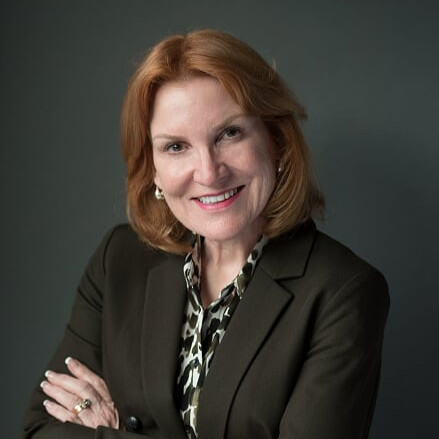Understanding the New Realities of Job Searching in the COVID-19 Era
By Susan B. Walton, Ph.D., APR, Fellow PRSA
January 2021
Nine months into the COVID-19 pandemic, the job market isn’t looking good. The number of Americans seeking unemployment benefits remains at a near-record high and only half the jobs lost to the pandemic in the spring of 2020 have returned, the Associated Press reported in late November.
This double whammy paints a bleak picture for new PR professionals looking to advance their careers. For new college graduates the outlook is even tougher. Many are seeing their job and internship offers deferred or rescinded.
While the PR profession is not immune to the current economic and employment downturn, we have tools to help us. Most important, we’re fortunate to work in “a profession of relationships,” says Ron Culp, APR, Fellow PRSA, a consultant and educator who is also professional director of the Graduate PR and Advertising Program at DePaul University in Chicago. “PR pros are inherently empathetic, and in this environment they are more committed than ever to helping others.”
Especially for recent grads and early career PR people who are looking for jobs, professional relationships can make all the difference. But leveraging your network requires understanding the new realities of job-hunting in the pandemic era.
Network on LinkedIn and Twitter.
For the time being at least, coronavirus has changed or eliminated many traditional networking opportunities such as meetings and events. Now, “you have to find a way to establish and maintain connections in the virtual world,” Culp says.
As a result, social media networks have become more important than ever. Culp advises job-hunters to spend an hour a day focusing on the two primary channels of LinkedIn — which is fast becoming the heir apparent to the traditional résumé — and Twitter. Devote that hour to building quality content on your profile and establishing good connections, he says.
Understand intangibles.
Savvy job candidates have long made it a point to learn the qualities of an organization that are not easily defined, such as its culture, work style and expectations. But with virtual interviews over the internet you lose the opportunity to observe those intangibles, says Alyssa Boule, senior vice president of recruitment for Edelman in Washington, D.C.
“You can’t show up to the interview early, sit in the reception area and see how people act,” she says. “You can’t walk past conference rooms and see how colleagues collaborate.”
Job interviews conducted via video calls also change the questions you must ask, because you’re forced to gather information about those intangibles from other peoples’ experiences rather than your own, she says.
Boule recommends using your research skills and network to learn those answers before the interview. Find the company’s current or former employees on LinkedIn and reach out to them for insights, she says. Review the organization’s website for photos and other clues about its dress code and work environment. Read news articles about the company and its leadership.
Virtual environments can also affect your job-interview performance, so Boule advises practicing beforehand. “Make a video of yourself, and give it an honest critique,” she says. “Become more conscious of your body language, posture and facial expressions.”
Deepen your relationships.
Now is the time to not only build and expand your professional network, but also to nurture your existing contacts, says Andrew Cook, an associate for social impact at Weber Shandwick in Seattle and former national president of PRSSA. Meeting new people may be harder right now, but you can deepen your relationships with people in your network and ask them for help, he says.
Cook also advises setting up job alerts for the city where you live (or would like to live) and for specific companies that interest you. This targeted approach will give you a sense of the employment market and let you help other job-seekers by passing postings along to them.
When you follow a company on social media, let them know you’re following them, Culp says. He recalls a former student who received a recruiting call from such an organization — not because the student had applied there, but because people from the company knew he was following them and saw that his skills matched their needs.
Understand what has not changed.
Despite the changes brought by COVID-19, some traditional job-search rules still apply. “Don’t apply online and then do nothing,” Boule says. “Follow up. If you don’t know anyone at the company, scour LinkedIn and find out who works in the practice area you’re targeting. Then, connect with those individuals and add them to your network.”
On the other hand, Boule also cautions against following up too often. If you’re in an active interview process, checking in once a week may be OK, but ask the hiring manager upfront if that frequency will be acceptable, she says.
Remember that sending thank-you notes after job interviews is still in style. Email is the best option, since many people aren’t in their offices to receive regular mail.
Wear your badge of resilience.
If the pandemic has slowed down your job search, use that time to your advantage, Cook suggests. “This is the moment to up your ‘hustle quotient,’” he says. “Find limited gig engagements, projects, volunteer opportunities, freelancing. Do things that reflect your skills. Write your own blog.”
Perhaps most important during the lull in your job search, “Make sure you’re not regressing” in your skills, he says.
If despite your best efforts you still find yourself with an employment gap, then don’t worry about it too much, Boule advises. “This is not the first time there’s been a hit to the economy,” she says. “Acknowledge that impact upfront: ‘My career has looked different than I thought it would, but it’s been a good learning experience.’ This is simply a part of your professional story. Proudly wear your badge of resilience.”
Above all, Culp adds, stay positive and proactive. “A powerful network of PR professionals is there to help you,” he says. “The best way to find them is by raising your hand.”



